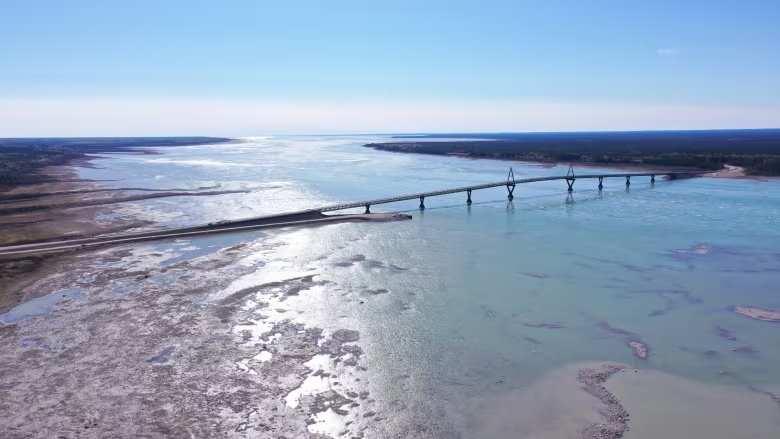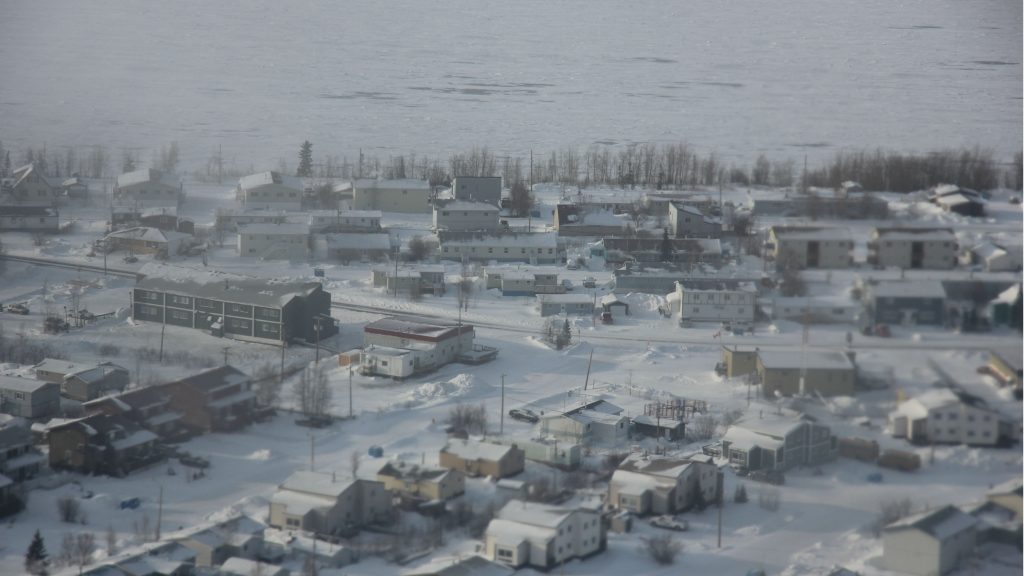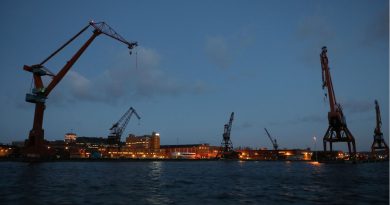Norman Wells and Tulita, N.W.T., won’t get barge deliveries this year

Low water levels on Mackenzie River cited as reason for cancellation
Two N.W.T. communities won’t receive barge deliveries this year due to low water levels on the Mackenzie River.
On Thursday morning, the territorial government announced Marine Transportation Services would be cancelling barges to Norman Wells and Tulita.
In a news release, the Department of Infrastructure wrote that the Mackenzie River near Fort Providence is “not navigable and includes obstacles such as large boulders and gravel bars at key manoeuvring areas.”

It wouldn’t be safe for barges to traverse the river, the department wrote.
“We understand that these changes have negative impacts on customers, but safety remains our top priority,” it wrote.
Fuel deliveries once winter road opens
The cancellation means the territory’s fuel services division will deliver fuel to Tulita once winter comes and the winter road opens. The department wrote that there should be enough fuel in Tulita to tide the community over until that time.
It said it has notified Imperial Oil of the cancellation, since Imperial Oil sells fuel in Norman Wells.
The announcement comes two weeks after the N.W.T. government announced major changes to the barge schedule for 2024. That announcement meant all cargo going north of Norman Wells would be redirected to Tuktoyaktuk instead.
Last week, Buffalo Airways announced it would be offering discounted rates to fly cargo to Sahtu communities as a way to offset the impacts of changes to barging schedules.
Related stories from around the North:
Canada: Limited transportation infrastructure facing threats in northern Canada, The Canadian Press
Norway: Thawing permafrost melts ground under homes and around Global Seed Vault in Svalbard, The Independent Barents Observer
Russia: 30–50% of critical northern infrastructure could be at high risk by 2050 due to warming, says study, Eye on the Arctic



